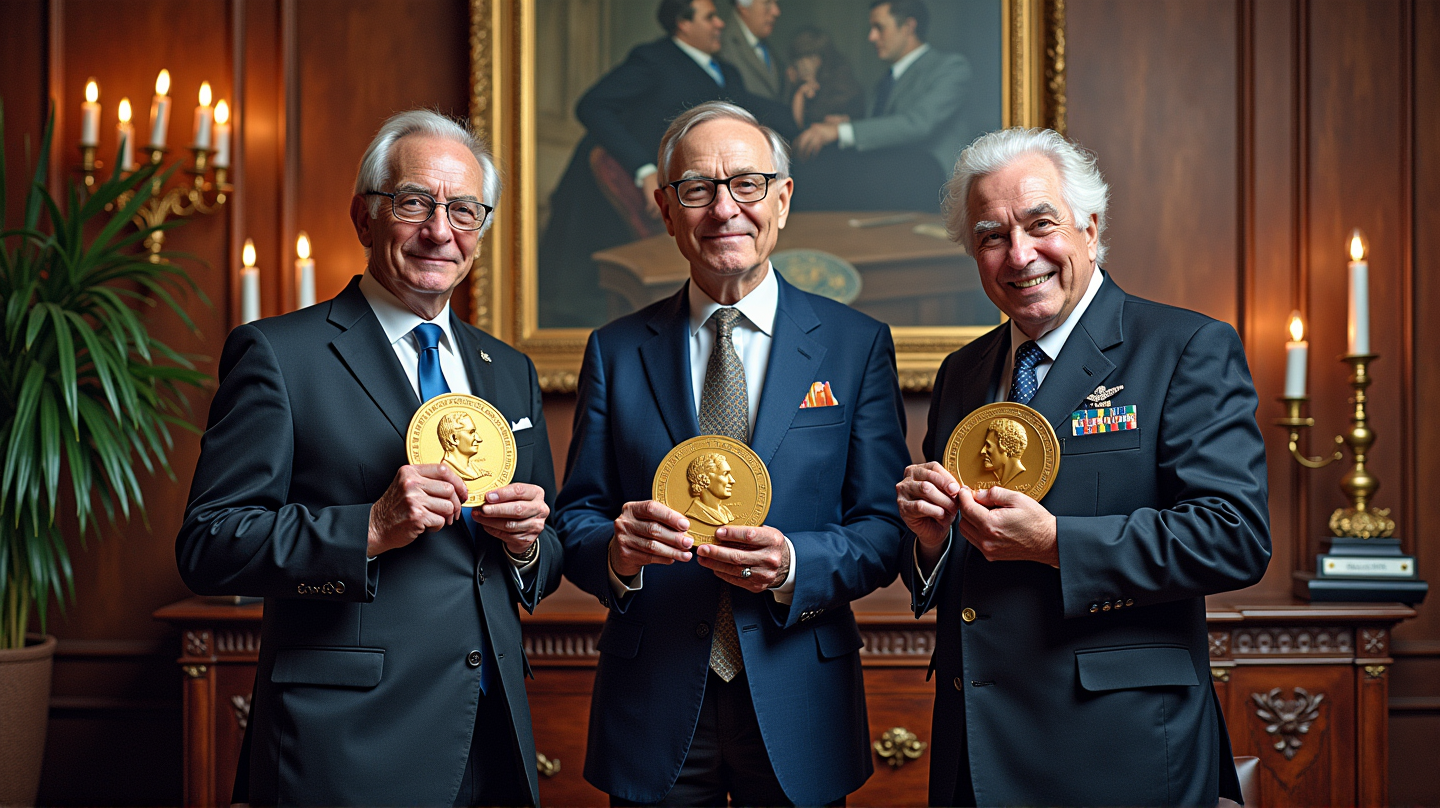Triumph of Innovation: The Nobel Economics Prize of 2025
Delve into the stories behind Joel Mokyr, Philippe Aghion, and Peter Howitt winning the Nobel economics prize for their groundbreaking work on innovation-driven growth.

Pioneers of Progress
In a landmark announcement that reverberated through the world of economics, Joel Mokyr, Philippe Aghion, and Peter Howitt were awarded the prestigious Nobel memorial prize in economics. Their pioneering work on the role of innovation in economic growth sheds light on the enchanting dance of creative destruction, forever immortalizing them in the pantheon of economic thought.
Complementary Geniuses
The trio showcases a harmonious blend of historical insight and mathematical dexterity. Mokyr, an economic historian, captured long-term trends using historical epochs, while Aghion and Howitt brought these theories to life with mathematical prowess. According to ABC News - Breaking News, Latest News and Videos, their combined efforts demystified ‘creative destruction,’ a process where new innovations replace old technologies, fostering a relentless cycle of economic rejuvenation.
A Nobel Moment
Mokyr, at the ripe age of 79, received the life-changing call, illustrating his disbelief with endearing wit. “I told my students I had more chances of being elected Pope,” he chuckled, his Jewish heritage adding a ripe irony to the moment. Unlike the simplicity of everyday life, Mokyr’s research is anything but simple, illuminating the pathways that sustain modern economic schemas.
From the Lab to Policy
Philippe Aghion’s contributions stretch beyond academic walls. Renowned for sculpting French President Macron’s economic blueprint in 2017, Aghion recently co-chaired an Artificial Intelligence Commission advocating for France’s AI leadership. This involvement underpins the real-world implications of the laureates’ work and its potential to shape policy.
The Legacy of Creative Destruction
At the heart of their research lies the vivid concept of creative destruction, a theory first proposed by Joseph Schumpeter that posits a constant cycle of innovation supplants obsolescence. This pivotal ideology not only explains economic flux but warns of stagnation should these stimuli dwindle. “Economic growth cannot be taken for granted,” emphasized John Hassler, reinforcing the necessity to nurture the very seeds of economic evolution.
Acknowledging the Giants
The grandeur of Nobel recognition brings with it the allure of legacy—not only a prestigious gold medal but a substantial monetary prize. Albeit a mere formality, the honor is invariably coupled with Alfred Nobel’s other celebrated prizes, uniting brilliant minds under the starry canopy of human achievement.
A Refined Sense of Purpose
While the economics prize may not be viewed by purists as a traditional Nobel, the impact of this recognition transcends mere optics. As noble minds gather in Stockholm on December 10, the anniversary of Nobel’s passing, the world stands reminded of the ceaseless symphony of ideas, innovation, and the interwoven tapestry of economics that keeps our society in forward motion.





